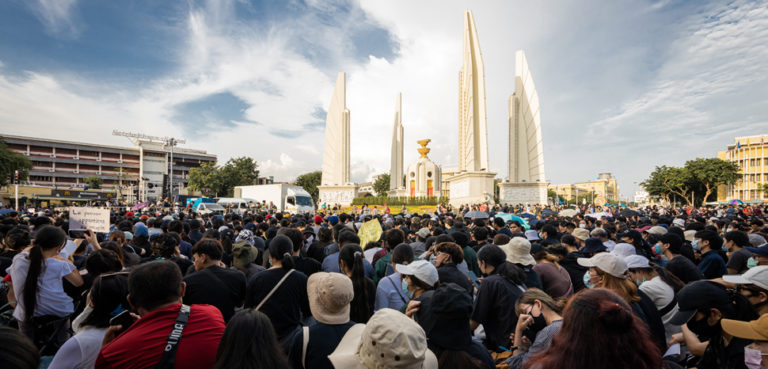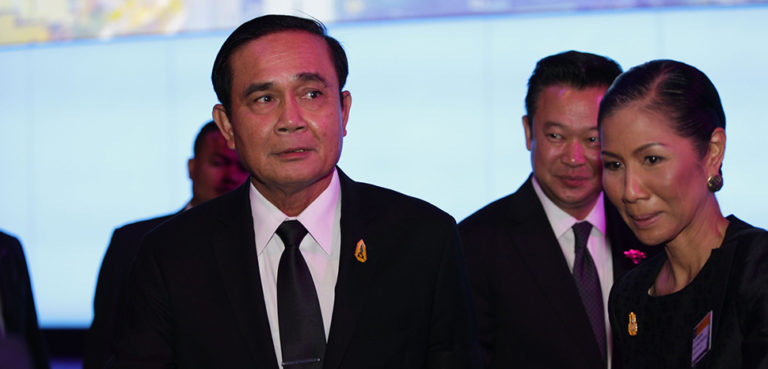On Wednesday August 7, 2024, Thailand’s Constitutional Court provided its verdict in the case against Thailand’s Move Forward Party. The verdict was in line with this author and many others prediction, which was to dissolve the Move Forward Party and ban its executives from politics and political office for 10 years. The ruling dissolved Thailand’s largest parliamentary party and party which had the highest popular vote in last year’s general election, taking 151 seats in parliament on the back of over 14 million votes. The ruling doesn’t destabilize Thai politics nor the general status quo in the Kingdom from its pre-verdict state. However, the courts judgement and available reasoning do hold some insights into possible implications on Thailand’s political economy. The case was brought to the Constitutional Court by the Election Commission on grounds that the party’s 2023 policy platform of reforming Article 112 of the criminal code, the lèse-majesté law, constituted an attempt to overthrow the regime of democracy with King as Head of State.
Constitutional Court Ruling Central Features
The Court ruling had at its core a few important thrusts. First is the obvious: the Move Forward Party is no more, its executives banned from politics and party leader Pita Limchareonlat, the Kingdom’s most popular politician, is banned from politics for 10 years.
Second, the court inserted its supremacy in the constitutional order of institutions with regard to the political party platforms and legislative processes. It ruled that the party platform of Article 112 reform constituted a threat to state security because it did not state clearly that any change would not touch on Articles 1 and 2 of the constitution, which states that Thailand is an indivisible Kingdom with a regime of democracy with King as Head of State. In essence, the Court laid down a clear precedence by ruling that there can be no talk of, policy stance, or legal process which in any way touches on the royal institution whatsoever. The ruling was also clear that any change to mechanisms or laws surrounding the royal institution constituted a threat to state security. Furthermore, the court ruled that the policy platform of 112 reform brought the monarchy and royal institution into disrepute and politics to which the royal institution is supposed to be above. Some commentators argue that the court did not rule out change or reform of Article 112 but the court’s vagueness on what constituted a legal change to the law is read by this author as an ‘invisible goalpost’ which is off limits. If any party in the future attempts to reform the law it is unknown if it will also face dissolution.
Third, the court inserted itself by extension of the above into the balance of power and relations between the executive and legislative branches of parliament. De facto the ruling has demarcated that the royal institution is off limits to any consideration legal or otherwise by any institution or person in the Kingdom. This is further buttressed by the fact that the 2018 Organic Law on the Constitutional Court insulates the court from any criticism of its decisions. The law raises defamation of the court in line with the Criminal, Appeals and Supreme courts but goes further in allowing up to two years imprisonment for defamation, which does not apply to the other courts. This insulates the court from any negative or critical public commentary of its decisions, in essence everyone is muzzled after a case and must either agree with the verdict or keep their thoughts out of the public realm.
Last, the court insinuated itself as the arbiter of truth and in Thailand’s civil society, academics and foreign relations. The court stated that its verdict ‘while against the opinion of academics, politicians and diplomats of all diplomatic rank was a matter of national context and any opinion must take into consideration diplomatic manners and protocol.’ This phrasing was likely inserted deliberately due to intense media coverage and criticism of a negative verdict and Pita meeting with 18 ambassadors at the German embassy on August 2nd in the run up to the verdict. The court by this reasoning put Thai civil society, academia, and foreign governments that ‘Thailand is special from all other countries in its context’ and Thai politics was a sovereign area which must be free from foreign interference. This reasoning coincides with the previous two points in marking the court as a supra-institutional court in the constitutional order of the Kingdom.
Implications of the Ruling
The court ruling, while dissolving the Move Forward Party, will not stop the forces unleashed with its predecessor, the Future Forward Party, which was also dissolved by the same court after the general election of 2019. The party has reemerged as the People’s Party, bringing with it all 143 Members of Parliament from the now defunct Move Forward Party. The movement for progressive change will continue, the outcome of this is of course unknown.
Calls for reform of Thailand’s political, economic, and social systems have been dealt a strong blow by the verdict. The court in its judgement signaled clearly that reforms from within the system will not be allowed under any circumstances outside of the status quo ante. The status quo is the current constellation of a Puea Thai led government. Thaksin Shinawatra is back in Thailand without charges and a willful ignorance of the previous 15 years of political conflict has emanated from the Thai elite.
There will be no progressive change in the Kingdom in the immediate or medium term in its politics and social relations. Any economic change is dependent on the current ideas of debt fueled consumer spending of Puea Thai’s digital wallet scheme, invitation to mass tourism of an ‘ASEAN visa’, vagaries of ‘soft power’ generation and casino gambling as a source or state revenue, employment, and tourism. These populist and quick win ideas do not deal with Thailand’s economic need for deep structural reform and the productivity lost over the previous lost decades.
Last is anecdotal but striking. This lies in the court ruling which by design or not is destroying hope for Thailand among its youth. As a lecturer in a course designed for undergraduates’ final term prior to graduation, this author asked a group of 38 students their plans for the 1-3 years post-graduation. No less than nine stated that they planned to go to graduate school abroad (the West) find a job and not come back to Thailand. The reason was simple, they see no future for themselves in the Kingdom’s economy and society. The underlying reason was a sense of disconnection from where Thailand is heading, social frustration of censorship and a sense of deep unfairness throughout Thai society. This is heartbreaking as an educator and bodes ill for the Kingdom. Many of its brightest and most capable no longer see the Kingdom as a place worth living and helping to build.
The reason for this malaise is simple. The political system is producing unjust outcomes that do not reflect the will of its people, the economy is stagnant and all attempts/calls for change have fallen on deaf ears. To make matters worse, calls for change are punished in the harshest manners with hundreds of people including children currently in prison or exiled abroad with activist ‘Bung’ dying in jail earlier this year. On this note the fight for a better Thailand continues; its outcome, we will see.
The views expressed in this article belong to the author(s) alone and do not necessarily reflect those of Geopoliticalmonitor.com.




